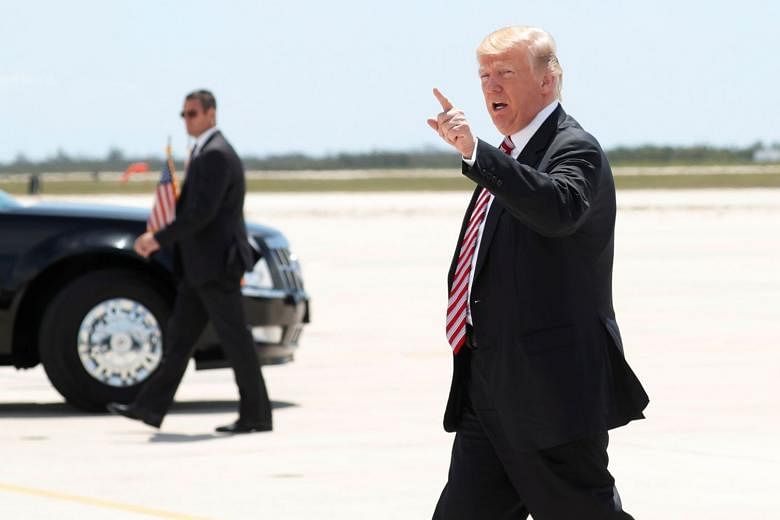WASHINGTON (REUTERS) - The Trump administration rolled out a long-awaited overhaul of US arms export policy on Thursday (April 19) aimed at expanding sales to allies, saying it will bolster the American defence industry and create jobs at home.
The White House aims to cut the time it takes to approve arms deals, lowering the hurdle to bigger sales and sales of more powerful weapons, and increasing the role of senior US officials in shepherding deals across the finish line, as earlier reported by Reuters.
The initiative builds on President Donald Trump's efforts to personally boost arms sales on calls with foreign heads of state.
Companies that stand to benefit from the new policy most include Boeing and the other top US defence contractors, Lockheed Martin, Raytheon, General Dynamics and Northrop Grumman.
The plans have been in the works for a year, with White House trade adviser Peter Navarro playing a major role in driving the project forward.
Navarro said in a statement the new policies "will create American manufacturing jobs, strengthen our allies and partners, support a robust defence industrial base at home, and promote American economic and security interests abroad."
Human rights will now carry equal weight alongside other considerations in planned arms sales including the needs of allied nations and the economic loss if the US contractor does not win the sale when decisions are made on whether to approve an arms deal.
"This is a balanced policy," said Ambassador Tina Kaidanow, an official with the State Department who oversees arms export agreements. "We absolutely look at human rights as one of a set of considerations that we look at."
The planned revision of US weapons export policy also includes a new drone export policy that allows smaller lethal drones that can fire missiles and surveillance drones of all sizes will soon become more widely available to US allies, Reuters reported in March.
Two potential beneficiaries of the rule changes, Textron and Kratos Defence and Security Solutions, currently market smaller armed drones internationally.
The full text of the drone policy will remain classified along a list of potential buyers being given fast-track treatment is expanding to include more countries, a State Department official told Reuters this week.
Previously, US government sources had said that more Nato members, Saudi Arabia and other Gulf partners as well as treaty allies such as Japan and South Korea would be given the favorable treatment regarding drone sales.
Trump has pressed foreign governments to buy more US-made weapons in nearly every call he has had with a head of state of major allies, a State Department official said earlier this week.
The new policy will go well beyond a relaxation of rules for foreign military sales under President Barack Obama in 2014 that enabled US arms contractors to sell more overseas than ever before.

